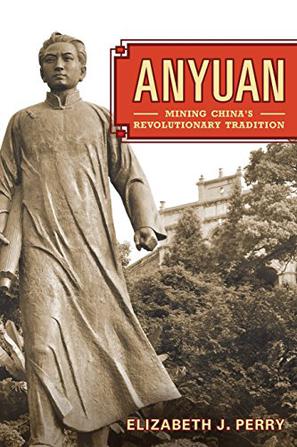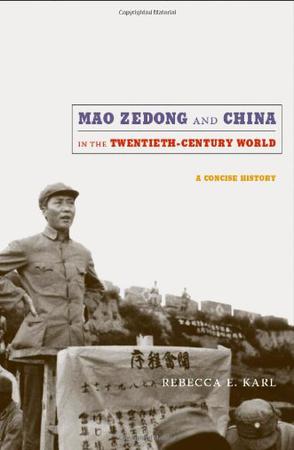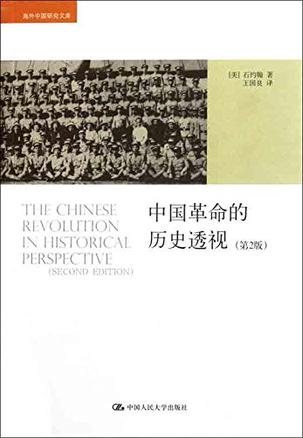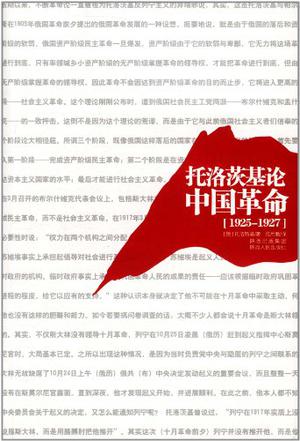-

Anyuan
How do we explain the surprising trajectory of the Chinese Communist revolution? Why has it taken such a different route from its Russian prototype? An answer, Elizabeth Perry suggests, lies in the Chinese Communists' creative development and deployment of cultural resources - during their revolutionary rise to power and afterwards. Skillful "cultural positioning" and "cultural patronage," on the part of Mao Zedong, his comrades and successors, helped to construct a polity in which a once alien Communist system came to be accepted as familiarly "Chinese." Perry traces this process through a case study of the Anyuan coal mine, a place where Mao and other early leaders of the Chinese Communist Party mobilized an influential labor movement at the beginning of their revolution, and whose history later became a touchstone of "political correctness" in the People's Republic of China. Once known as "China's Little Moscow," Anyuan came over time to symbolize a distinctively Chinese revolutionary tradition. Yet the meanings of that tradition remain highly contested, as contemporary Chinese debate their revolutionary past in search of a new political future. -

心路沧桑---从国民党六十军到共产党五十军
解放战争期间,中国人民解放军共接收改造国民党部队188万人,而国民党第六十军是唯一一支起义后被整军改造为中国人民解放军第五十军的部队。该书以纪实的笔法,通过大量鲜为人知的文献记载和历史档案,以及对近200位亲历者的采访,详细记述了国民党第六十军长春起义的前缘后果、起义后的思想改造和组织整编过程,如安东整训、兴隆整训、“泪血大控诉”和“思想还家”运动等,以及改造后成为中国人民解放军第五十军在解放大西南和抗美援朝战役中的英勇战绩等重要节点。通过部分起义官兵和改造起义军干部的自述,详细记述了部分起义官兵的人生经历和他们起义后弃旧履新、命运多舛的心路历程,如由于当年接受思想改造的深度不同,以及种种个人(如受旧制度和旧军队的影响程度)或历史(如新中国成立后的历次政治运动)等原因,有的人起义后被历史的大潮无情地吞没,有的人起义后虽历经了个人命运的多舛却对当年的起义始终无悔。该书毫不隐讳地揭示了中国革命在实现新旧交替过程中思想改造的艰难与曲折。 -

Mao Zedong and China in the Twentieth-Century World
-

Dialectic of the Chinese Revolution
In a comparative philosophical perspective, Jiwei Ci provides an thought-provoking philosophical and psychological interpretation of the history of Chinese revolution from Maoist utopianism to reform-era hedonism. Ci argues against the common conception of the Maoist project as ascetic utopianism. Instead, he sees sublimated hedonism as an integral part of utopianism, and through ideological bankruptcy caused by the irreconcilable separation between reality and meaning creates nihilism, in turn leading to full-scale hedonism. Under this universalizing framework, Ci presents the materialist roots of Maoism his detour on the road to capitalism, reframes the Great Leap Forward and Cultural Revolution as struggles against the routinization or depersonalization of charisma,and even reinterprets the Democracy movement and recent anti-corruption agitation as inherently hedonistic. -

中国革命的历史透视
本书从中国自身的历史视角出发,通过对中国近两百年革命历程与鸦片战争前中国古代历史关系的考察,辅以对中国社会内部的发展演变作理论上的综合理解,认为近代中国向西方求索借鉴之理想就是中国社会中已丧失的、长期被遗忘的传统。外因是变化的条件,内因是变化的根据,西方对近代中国的冲击与影响,激活、唤醒了中国业已遗失的传统。当今中国正处于重要的转折时期,正努力探索自己的道路,在经历了近百年的时而平缓、时而激进的反传统浪潮之后,认真清理分疏自己民族的优秀文化遗产,结续传统,融会新知,堪称二十一世纪中国文化的重要使命。作者独具一格的思考对此当不无启迪。 -

托洛茨基论中国革命
《托洛茨基论中国革命(1925-1927)》为了挽救中国革命,托洛茨基曾与当时的斯大林路线进行了殊死斗争。他指出,民族解放斗争实质上仍是阶级斗争,用马克思主义的阶级分析批判斯大林的阶级调和论,主张共产党退出国民党,保持自己的独立性,在革命高潮时建立苏维埃,夺取统一战线的领导权,把资产阶级民主革命进行到底。 由于历史的种种原因,托洛茨基的建议未能付诸实施,但他对中国革命形势的正确分析,和对中国革命进程的准确预见,堪称无产阶级革命战略策略的典范。 《托洛茨基论中国革命(1925-1927)》集结了托洛茨基文章中所有有关中国革命问题的论述,选取于现存各国的各个语种的公开出版物,按写作的时间顺序爬梳整理,以精炼到位的翻译语言,再现了这位伟大先知的独特智慧和预见力。